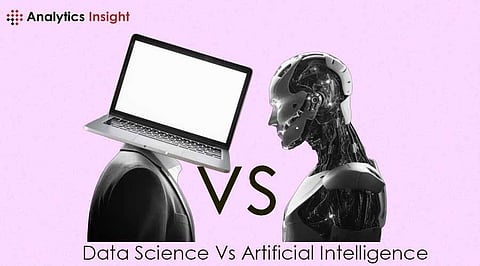

The intersection of Data Science and Artificial Intelligence (AI) has spurred significant innovations and transformed industries by enabling enhanced decision-making and more personalized services. However, despite their close interrelation, these fields are distinct, each with its unique characteristics and applications. This detailed discussion explores the core differences between Data Science vs Artificial Intelligence, helping professionals and enthusiasts understand the optimal application of each discipline.
Data Science and Artificial Intelligence are buzzwords in the tech industry, often used interchangeably, yet they denote different domains. Data Science involves processing and analyzing vast amounts of data to extract meaningful insights. In contrast, Artificial Intelligence entails creating algorithms and models that enable machines to perform tasks that typically require human intelligence.
Data Science has evolved from statistics and data analysis disciplines, focusing on using quantitative methods to infer patterns and insights from data. It has grown significantly with the advent of big data technologies, which allow the handling and processing of enormous datasets more efficiently than ever before.
Artificial Intelligence traces its roots back to the realms of logic and computing. Early AI was about encoding human knowledge and logic into machines. However, the field has shifted towards machine learning and neural networks, emphasizing learning from data patterns without explicit programming for each task.
Data Science methodologies involve statistical analysis, predictive modeling, and data processing techniques to gather, clean, and visualize data. Common tools and programming languages in this field include Python, R, SQL, and specialized libraries like Pandas and Scikit-Learn.
AI focuses on algorithms for machine learning, deep learning, and natural language processing. Tools frequently used in AI include TensorFlow, PyTorch, and Keras, facilitating the development of models that can analyze and interpret complex data structures beyond traditional data analysis capabilities.
Data Science applications are vast, including risk management, fraud detection, market analysis, and healthcare. For instance, in healthcare, data scientists develop models to predict patient outcomes based on historical health data.
AI applications extend from autonomous vehicles and robotic process automation to sophisticated chatbots and personal assistants. For example, in e-commerce, AI algorithms personalize shopping experiences by recommending products based on user behavior and preferences.
While Data Science provides the groundwork for data handling and analysis, AI leverages that data to build intelligent systems that can learn and make decisions. This integration is evident in areas like advanced predictive analytics, where machine learning models predict future trends and behaviors with high accuracy.
AI poses significant ethical challenges, especially around privacy, surveillance, and decision-making biases. These issues are central to debates on how AI should be deployed, particularly in sensitive sectors like healthcare and law enforcement.
Data Science also faces challenges concerning data privacy and security. Ensuring the ethical use of data, adhering to regulations like GDPR, and maintaining public trust are pivotal.
The future of Data Science lies in developing more robust, scalable systems that can handle increasingly complex datasets while providing real-time insights.
AI is steering towards more autonomous, self-improving systems capable of performing complex tasks with minimal human oversight. The advancement in quantum computing also promises to break the current limitations of AI, enabling machines to process information at unprecedented speeds.
Understanding the distinctions between Data Science and Artificial Intelligence is crucial for leveraging each field's strengths to solve specific problems. While they overlap, each has its methodologies, tools, and applications that are shaping the future of technology and business. By delineating these differences, professionals can better integrate these technologies to drive innovation and efficiency in their operations.
This comprehensive examination highlights not only the theoretical differences but also the practical applications and considerations, preparing the groundwork for informed decision-making and strategic planning in tech-driven industries.
